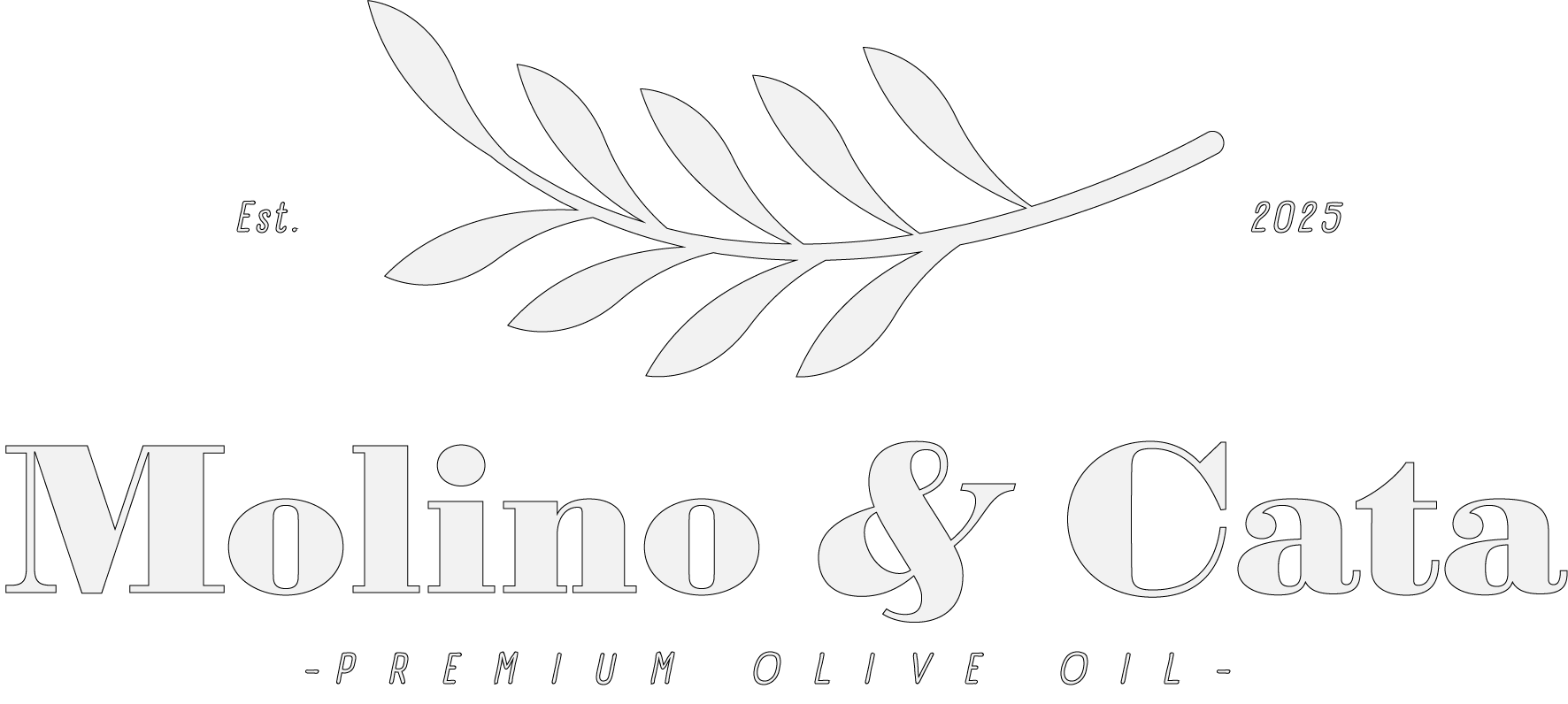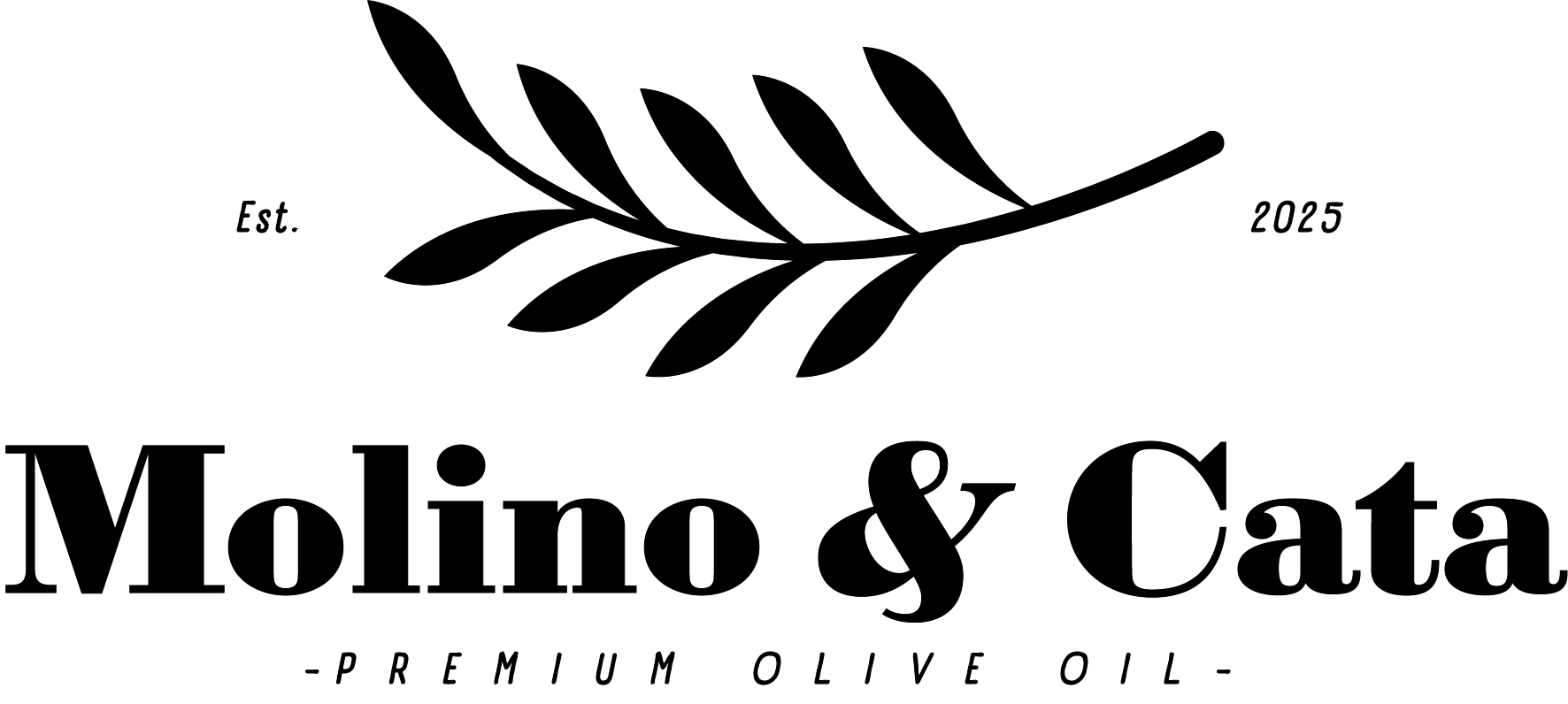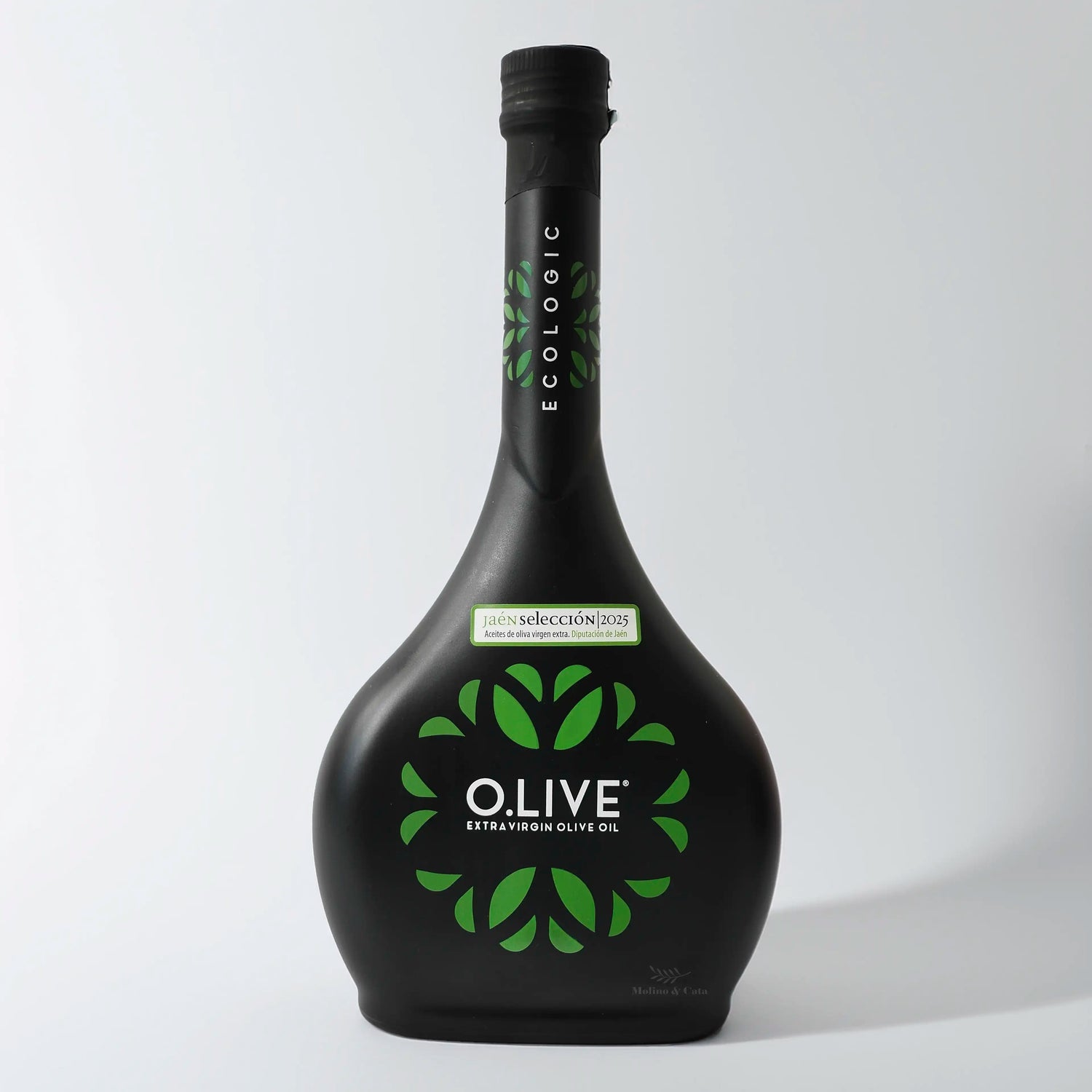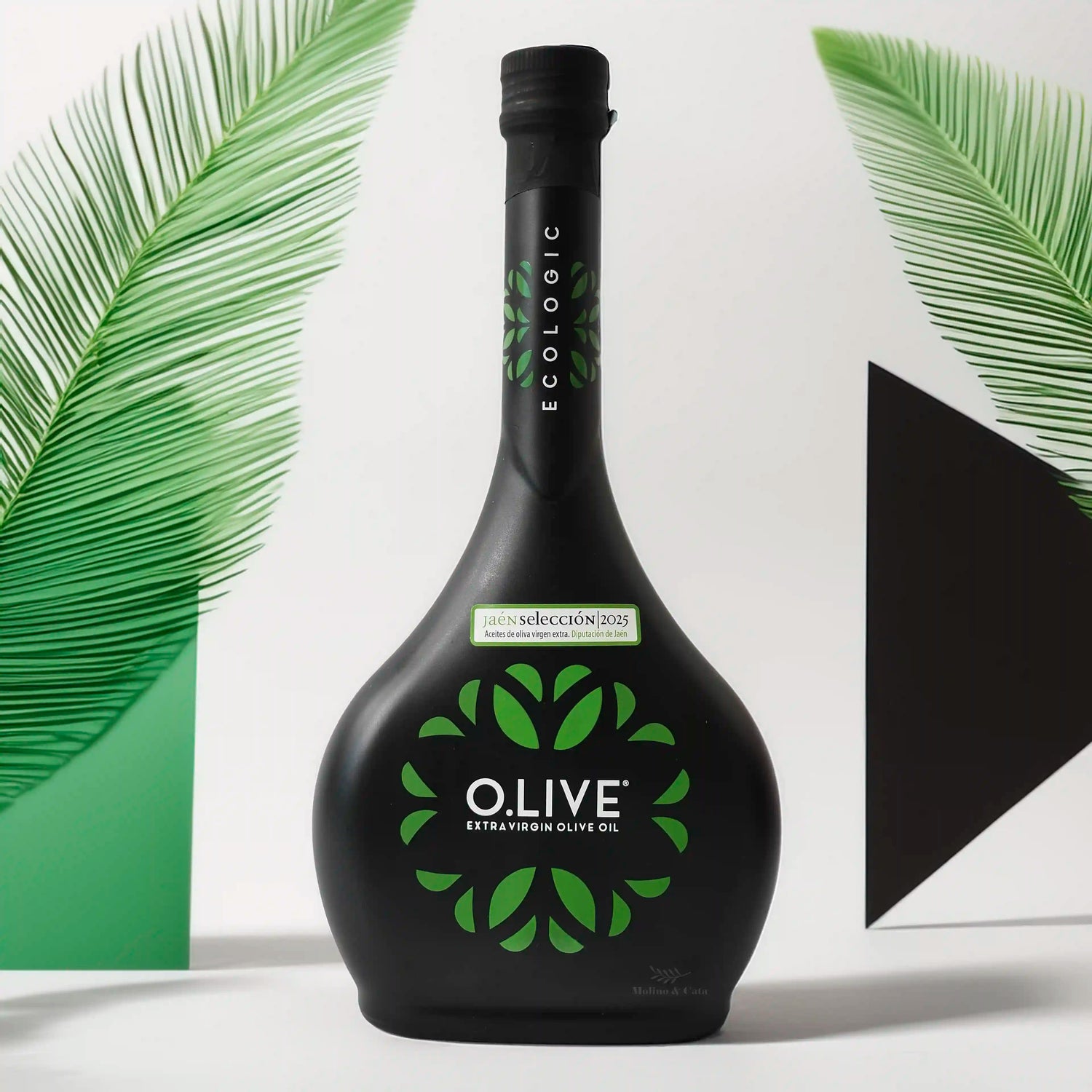
Organic Extra Virgin Olive Oil
Nowadays, choosing between organic and conventional Extra Virgin Olive Oil (EVOO) is an increasingly common decision for consumers concerned about health and the environment.
Both categories share fundamental qualities, such as their production using exclusively mechanical methods and their maximum permitted acidity of 0.8%, as required by law.
However, they present key differences in cultivation methods, environmental impact, nutritional benefits and organoleptic characteristics.
Organic farming methods
Organic Extra Virgin Olive Oil is produced following strict standards established by official certifications that prohibit the use of pesticides, chemical fertilizers, and herbicides.
This method respects biodiversity and promotes the conservation of the agricultural ecosystem through sustainable practices such as organic composting, mulch in olive groves, and biological control techniques to combat pests.
In contrast, conventional extra virgin olive oil allows for the moderate use of authorized chemicals, which can not only affect the environment but also leave certain residues in the final product.
While these residues are generally within safe limits established by health authorities, some consumers prefer to avoid them altogether for ethical, environmental, or personal reasons.
Nutritional differences
Nutritionally, both types of oil are very similar, providing monounsaturated fats beneficial for cardiovascular health, antioxidants, and vitamin E.
However, some studies suggest that organic oils may contain higher concentrations of polyphenols, antioxidant compounds associated with numerous health benefits, due to the natural stress to which olive trees are exposed without chemical treatments.
This could give them a slight nutritional advantage over conventional oils.
Regarding organoleptic characteristics, some experts and consumers maintain that organic olive oil offers purer and more authentic flavors and aromas, better reflecting the particularities of the soil and climatic conditions of the olive grove.
On the other hand, carefully crafted conventional early-harvest oils also achieve high sensory standards, although they may present less complex profiles due to the common use of chemical fertilizers that accelerate and standardize fruit growth.
Three studies on Organic Extra Virgin Olive Oil
A pioneering study conducted by the Andalusian Institute for Agricultural and Fisheries Research and Training (IFAPA) demonstrated that organic olive oils have a significantly superior nutritional profile to their conventional counterparts. According to the data obtained, organic olive oil showed notable increases in key antioxidant compounds: 31% more hydroxytyrosol, 18% more flavonoids, and 31% more phenolic acids. This increase in antioxidant compounds is attributed to the olive tree's natural response to the absence of chemical treatments, enhancing its defensive capacity and providing greater health benefits to the consumer.
Between 2018 and 2020, the European ExtraOil project developed an innovative, eco-sustainable extraction technology specifically designed for organic oils . This method combines a high-pressure protoreactor with a vertical centrifuge, achieving not only increased process efficiency but also up to 40% higher polyphenol concentrations in the oil obtained. This result, reported by Olive Oil Times, highlights that oleocanthal and other polyphenolic compounds exhibit exceptional antioxidant properties that can protect against various diseases, including cancer.
Furthermore, a longitudinal study conducted between 2017 and 2025 by researchers at the University of Athens showed that organic oils made from the cornicabra variety contain high concentrations of oleocanthal, a phenolic compound known for its anti-inflammatory and anticancer properties. This compound showed selective activity against cancer cells in in vitro studies, suggesting promising therapeutic potential that could revolutionize its application in nutrition and preventive medicine.
Economic sustainability and price
The cost of organic olive oil tends to be higher due to increased labor costs, reduced yields, and the strict controls required by certifying agencies.
This premium may be a barrier for some consumers, but it also reflects an agricultural model that supports rural conservation and the local economy.
When purchasing organic olive oil, it's essential to look for recognized official seals, such as the European Organic Seal, which certifies its authenticity and quality.
It is also advisable to check the harvest date to ensure freshness and optimize the nutritional benefits of the oil purchased .
Ultimately, the choice between organic and conventional oil depends largely on the consumer's personal priorities.
Those who value environmental protection, biodiversity, and agricultural sustainability may prefer organic products, while those looking for a more economical option without sacrificing quality may opt for conventional products.
Both options provide important benefits if they meet the high quality standards that define authentic Extra Virgin olive oil compared to Virgin Olive oils .
Regardless of your final choice, it's key to remember that regularly incorporating EVOO into your diet is a beneficial and healthy decision. Finally, we must also keep in mind that preserving the oil is key to maintaining its health-promoting properties.
Share















